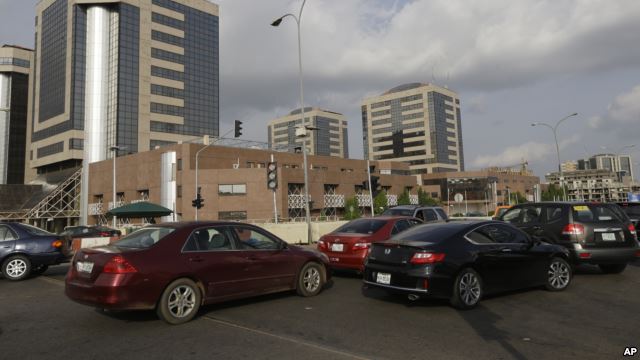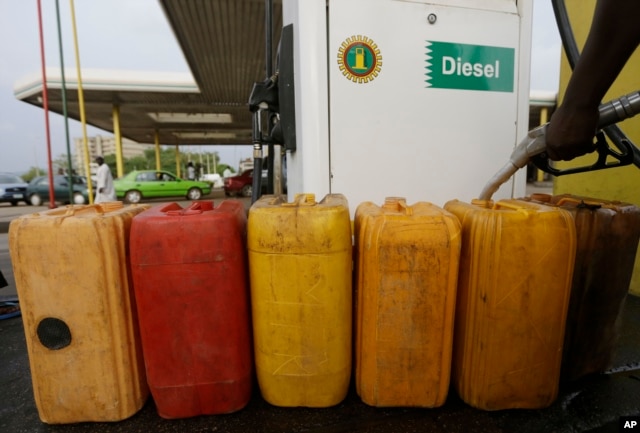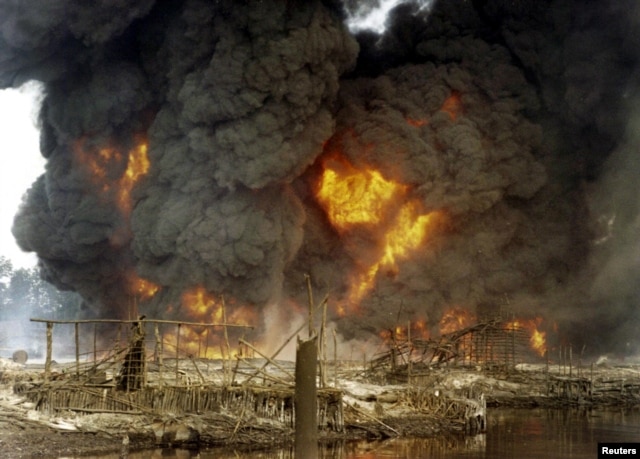 Oil was on the mind of Nigeria’s President Muhammadu Buhari during his three-country tour of the Middle East last month.
Oil was on the mind of Nigeria’s President Muhammadu Buhari during his three-country tour of the Middle East last month.
In Qatar, he called the low global price of crude oil “unacceptable.” And after a visit to the king of Saudi Arabia, Buhari released a statement saying the two leaders had agreed to stabilize the price of oil.
But at a meeting with business leaders in the capital Riyadh, Buhari talked up his government’s investments in agriculture and mining — an acknowledgement, perhaps, that the price of oil was unlikely to rise substantially any time soon.
Despite Buhari’s lobbying ahead of a meeting of several OPEC members later this month, analysts say Nigeria has little leverage to convince petroleum-producers to take steps, such as cutting production, that would allow the price of oil to rise.
Saudi Arabia’s leading role
One OPEC member in particular has shown little interest in slowing down the flow of crude: the cartel’s top producer, Saudi Arabia.
“With OPEC, a lot relies on Saudi Arabia,” said Rhidoy Rashid, an analyst at London-based Energy Aspects. “If there’s going to be a cut in OPEC production, Saudi Arabia will have to take the lead on that.”
A man fills containers with diesel at the Nigeria National Petroleum Corporation, petrol station in Abuja, Nigeria, May. 26, 2015.
Proceeds of oil make up the majority of Nigeria’s government revenue and nearly all the country’s export earnings. But with the price of a barrel hovering around $35 per barrel – down from more than $100 per barrel just two years ago – growth is expected to slow, and Buhari’s new government plans to turn to lenders to fund this year’s budget.
In the face of an oil supply glut, Rashid says Saudi Arabia has adopted a strategy of fighting for market share, and has show little interest in cutting down on the crude flowing from its pipelines.
“Saudi Arabia is unwilling to cut output unilaterally to support the market and is extremely skeptical of other countries, including Nigeria, that they’d ever deliver on promises to reduce production,” Rashid said.
Nigeria reluctant to cut production
Even though its production of about two million barrels per day makes it Africa’s largest producer of crude, Nigeria is not in a position to cut oil production on its own, said Hannes Loacker, an analyst at Vienna-based Raiffeisen Bank International.
Smoke and flames billow from a burning oil pipeline in Andoni, Rivers State, Nigeria, Dec. 20, 2005.
Fears that militants or thieves might disrupt output in the oil-producing Niger Delta, he says, will lead Nigeria to keep the oil wells pumping.
“I don’t think that they really will do this,” Loacker said of supply cuts. “They have plenty [of] problems with pipeline attacks in their country.”
OPEC members will meet later this month, and may agree on capping oil production at a certain level. But such a cap would only work if all countries abide by it, Loacker said. He cited Iran, which is ramping up exports of crude after the relaxation of economic sanctions, and has shown signs it won’t cooperate.
The best hope for an oil price increase, Loacker said, will come from better economic performance by emerging markets in Asia such as China, which has recently grappled with tumult in its stock markets and a slowdown in growth.









